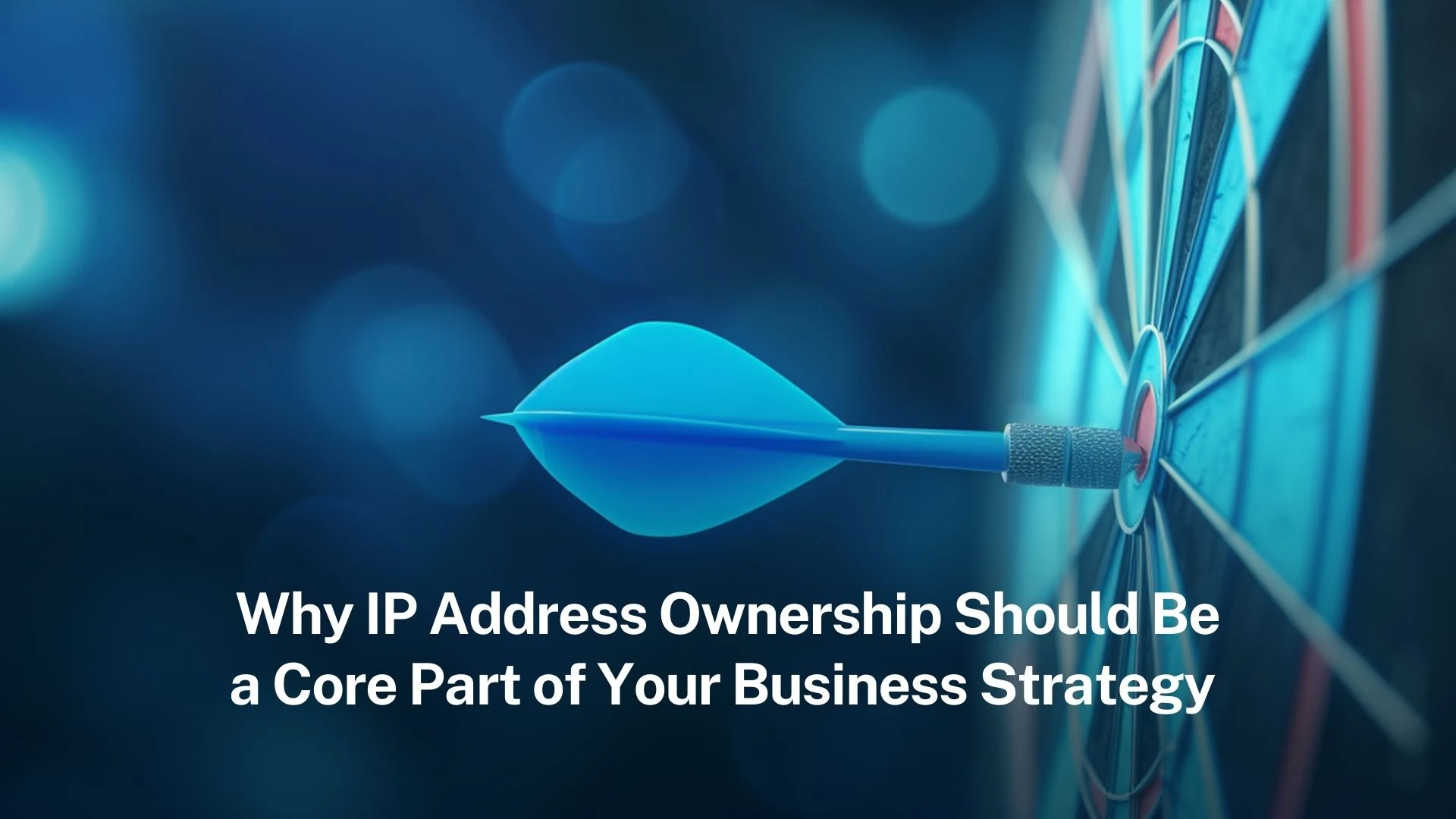Owning IP addresses is getting more and more important for businesses. This paper tells why a strong IP address strategy is key for business growth.
Table of Contents
ToggleKey Points
IP address ownership gives businesses better control over their network systems. It also brings a higher level of flexibility. These two things help businesses make their daily operations ready for the future.
Getting a dedicated set of IP addresses can make a business’s security better. It can improve the business’s reputation in the market. It can also help the business grow easily. This makes the business less dependent on outside service providers.
Introduction: The Importance of IP Address Ownership in Today’s Digital World
The modern world is changing digitally at a faster pace. It is also more connected than ever before. In this situation, IP address ownership is becoming a key part of business strategy. Many businesses get many benefits from owning a block of IP addresses. These benefits include better network management. They include stronger security rules. They also include a more trusted brand in the market.
You might run a new startup. You might want to expand that startup’s digital systems. You might manage a well-established company. You might want to make that company’s operations able to handle future changes. In all these cases, IP address ownership is an important thing to think about for strategy.
Businesses now rely more on cloud services. They depend a lot on e-commerce platforms to make money. They also use data-based processes in their daily work. This greater reliance makes controlling your own IP addresses more important than ever. This article looks at why IP address ownership is a core business strategy. It explains the specific benefits of owning IP addresses. It also points out the possible risks if you don’t take control of your network resources.
What Is IP Address Ownership?
You need a clear understanding of “IP address ownership”. This basic understanding is necessary before talking about its strategic importance. An IP address is a set of unique numbers separated by dots. This set identifies every device connected to the internet.
It works like a physical street address. It lets devices set up ways to communicate. It helps these devices send and receive data to each other over the internet.
When a business owns a block of IP addresses, it has direct control over those addresses. It decides how to give these addresses to specific devices. It also manages how these addresses are used in the network. This is different from leasing IP addresses. Leasing means getting addresses from third-party service providers.
Leasing agreements often have long-term contracts that you must follow. These contracts make the business depend on the service provider. They also limit how flexible the business can be. Owning IP addresses is different. It lets businesses manage their digital presence more independently. It also makes it easier for the business to grow and expand its network.
Why IP Address Ownership Is Important for Business Growth
1. Better Control and Flexibility
Owning IP addresses gives businesses better control over their digital systems. Businesses don’t have to rely on third-party providers to get IP addresses when they need them. They can manage their network settings based on their own strategic needs.
This control becomes very valuable as companies grow bigger and do more. Growth means a greater need for flexible work systems. Business managers can make their own decisions about network routing rules. They can choose how to best use bandwidth resources. They can also set up custom network security measures.
They don’t need to ask external service providers for approval first. They can adapt quickly to new technology. They can also expand their business operations without unnecessary delays from paperwork or provider rules.
2. Easier Growth
Leasing IP addresses can limit how much a network can grow. These limits become more obvious as a business grows steadily. Leasing contracts often have rules that restrict growth. These rules can slow down or stop expansion plans.
Businesses may have to renegotiate their contracts to get more addresses. Owning a dedicated block of IP addresses solves this problem. Businesses can expand their network capacity smoothly. They don’t have to worry about running out of IP addresses. They also don’t have to spend time negotiating with third-party providers.
More and more businesses are starting to use IPv6. Many companies are switching their networks to this new system. In this case, owning your own IP addresses will be even more important. IPv6 has a much larger number of available addresses. This large number lets businesses grow more. It gets rid of the limits that come with the older IPv4 system.
3. Stronger Security
Security is a top concern for businesses in the digital age. Cyber threats are getting more complex and dangerous. This makes strong security measures more important. Owning your own IP addresses helps make network security stronger.
It lets businesses control how IP addresses are given out more strictly. It also lets businesses monitor how these addresses are used in the network more carefully. Without owning IP addresses, businesses face more security risks. One big risk is IP hijacking. Another big risk is bad actors using your IP addresses for illegal things.
Businesses that own their IP addresses are more likely to invest in advanced security tools. These tools include new types of firewalls. They include intrusion detection systems and private Virtual Private Networks (VPNs). These security measures are necessary to protect important business data.
4. Better Brand Reputation and Trust
Having a dedicated block of IP addresses can help a business’s reputation a lot. This help is especially clear when it comes to email deliverability. Many businesses use shared IP addresses for their emails. These businesses often have trouble getting their emails delivered.
The problem comes from other businesses using the same shared IP address. Those businesses may send spam or have bad email practices. Owning dedicated IP addresses fixes this problem. A business’s email traffic won’t be affected by what other companies do. This helps make the brand more trusted by customers.
Owning IP addresses also makes a business more visible online. It makes the business’s network easier for key people to recognize. These people include customers, business partners and others in the industry.
5. More Reliable Operations
Operational problems can happen to any business. They can come from cyberattacks. They can come from unexpected infrastructure breakdowns. They can also come from sudden changes in rules and regulations. Owning IP addresses helps keep operations running during these problems.
Companies that lease IP addresses face specific risks. They may have unexpected service outages. They may also have to pay more money suddenly from their providers. Both situations can mess up normal business operations.
Owned IP addresses give businesses more control over their operations. They help businesses keep their networks working well. Businesses can set up backup systems without outside limits. They can optimize their infrastructure based on their own needs. They can avoid problems from relying too much on external providers.
Risks of Not Owning IP Addresses
The benefits of owning IP addresses are clear and strong. Businesses also need to recognize and think about the risks of not owning their own IP addresses.
1. Too Much Dependence on Third-Party Providers
Leasing IP addresses means you have to follow the provider’s rules. Providers can change the terms of the service agreement. They can raise prices without telling you in advance. Businesses may also have to share IP addresses with other companies.
Sharing IP addresses brings more risks. These risks include more chances of security problems. They include slower network performance because resources are shared.
2. Limited Control Over the Network
Without owning IP addresses, businesses have little control over their digital systems. They may have few ways to manage network traffic. They may struggle to use bandwidth in a way that works best. They may also find it hard to set up strong network security rules.
These limits often lead to inefficiency. They can create security holes in the network. These problems can hurt business operations over time.
3. Problems With Future Growth
Business growth usually means needing more IP addresses. Leasing more addresses can become expensive quickly. It can also become a complicated administrative task.
IP addresses are becoming rare and valuable in the digital economy. Businesses without their own IP blocks may find it hard to grow.
How to Get IP Address Ownership
Getting IP address ownership isn’t too complicated. It does require careful planning and following established rules. The first step is to contact a Regional Internet Registry (RIR).
RIRs are organizations that manage IP address distribution in specific areas. The requirements for getting IP addresses are different for each business. The size of the business matters. The business’s location also matters. Based on these factors, businesses can ask for IPv4 or IPv6 address blocks.
Businesses must follow the rules and policies of the relevant RIR. These policies are not the same in every region. Companies need to show a real and provable need for the requested IP addresses. They must also provide detailed documents. These documents should explain how the IP addresses will be used.
Larger businesses often have more complex IP address needs. These businesses can benefit from working with network consultants. They can also hire specialized service providers. These professionals have the knowledge to help businesses get the right number of IP addresses for their operations.
Frequently Asked Questions (FAQs)
1. What is the difference between IPv4 and IPv6?
IPv4 is the older type of IP address. It has a small number of available addresses. IPv6 is the new version of IP address. It has a much larger number of addresses. This large number makes sure businesses can grow in the future.
2. How do I get a dedicated block of IP addresses?
To get a dedicated IP address block, you need to apply to a Regional Internet Registry (RIR). You must show a real and proven need for the addresses. This need must be related to your business’s main operations.
3. Is leasing or owning better for small businesses?
Leasing IP addresses may be cheaper for small businesses in the short term. Owning IP addresses has more and longer-lasting benefits. These long-term benefits include more flexibility, stronger security and easier growth.
4. Does owning IP addresses improve network security?
Yes. Owning IP addresses lets businesses set up stronger security rules. It gives businesses more control over how their IP addresses are used. It also helps prevent security risks like IP hijacking.
5. What are the long-term benefits of owning IP addresses?
Long-term benefits of owning IP addresses include better network control. They include easier growth and stronger security. They also include a better brand reputation. All these things help businesses grow and keep operations running smoothly.




Pingback: NRS Evolves Its Message: Shifting from ‘Own Your IP’ to ‘IP Is Capital | lifestyle.recentlegalnews.com